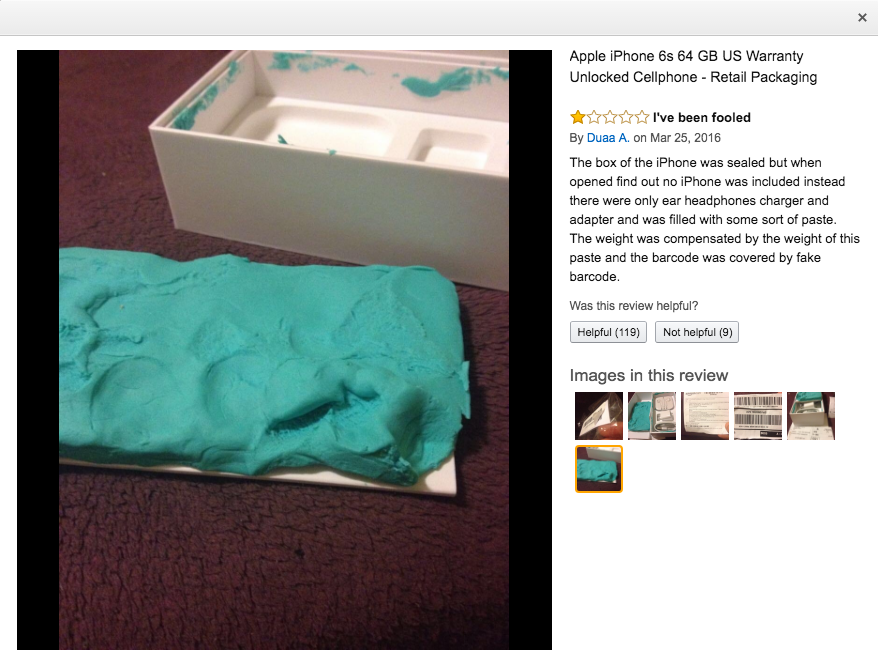Scammers Game Amazon A-Z Policy By Replacing iPhones With Clay
This morning I discovered some rather anomalous 1-star reviews on Amazon for the Apple iPhone 6s 128 GB. About 17% of the reviews for that product are 1-star reviews, and many of those are claims (with picture evidence!) that the seller shipped them an iPhone box full of clay, or some other odd object.

My first response was confusion. Occasionally here and there a seller might try to ship a box of clay and pocket the $1k purchase, but this strategy never pans out because Amazon has very strong buyer protection policies that means that sellers can’t just walk away with the money. So why would a seller keep trying this strategy such that this many reviews got posted?
That’s when it clicked: there are no seller scammers here - it’s the buyers that are the scammers.
Let me explain:
- Scammer creates a new Amazon account.
- Scammer purchases an iPhone using a legitimate payment method.
- Seller ships the iPhone with tracking. UPS/FedEx records the weight of the package.
- Scammer receives the package, swaps the iPhone for clay, and pockets the device.
- Scammer posts a review with pictures showing evidence that no iPhone was shipped, and opens a A-Z Guarantee claim against the seller.
- If the seller was relying on the UPS/FedEx weight record to verify shipment (which most do) and has no other proof that they actually shipped the iPhone, then Amazon may resolve the case in favor of the scammer, refunding their purchase and allowing them to keep the (now stolen) iPhone.
This works because Amazon heavily favors customers in their A-Z Guarantee claim process, and sellers don’t tend to record video evidence when shipping expensive merchandise (which they should).
The scammer incurs very little risk. If they win 1 in 10 claims, they pocket $1k. For the remaining 9 claims, they can just resell the phone themselves and the only costs they incur are shipping, which is more than covered by the free iPhones they get. Since they create a new account every time (which is evidenced by viewing the buyer profiles of the individuals posting the fraudulent reviews), it is difficult for Amazon to distinguish legitimate claims from fraudulent ones.
Meanwhile, the product page is flooded with fraudulent reviews, poisoning the well and moving future customers away from Amazon and towards trusted Apple retailers. Amazon and customers lose, but Apple possibly gets more customers.